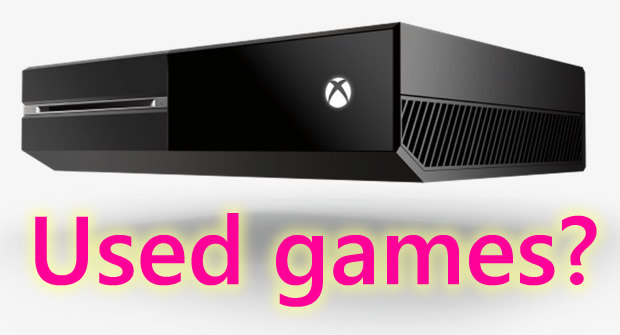Xbox One: Do we have a moral right to sell used games?


So it looks like Microsoft is going to impose some restrictions on how used games can be sold.
The change appears to be that if you want to use a game on your Xbox One that had previously been "tied" to someone else's Xbox One (by virtue of it being run on the original owner's console first), you'd have to pay a fee via Microsoft to the game's publisher.
But let's say you buy a game, a book, a CD, a DVD, whatever, and you want to sell it on — is that actually right? Is it a morally defensible thing to do?
I'm not entirely sure that it is.
Ecommerce
Back in 2000 I wrote a book called Beginning E-commerce. This book sold pretty well, mainly because of the title. (Although if I might perhaps be allowed a little immodesty, I think it was a rather good book, too.)
That book retailed for about $40. Of that $40, I received about $1.60 in royalties — i.e. about four percent of the retail price of the book.
However, for all the used copies of that book that got sold (and I bought a used copy myself once when I found it in a bookstore on holiday), neither myself nor the publisher received a penny.
One thing that's worth considering is what exactly is the author getting out of selling the book in the first place. Unless you're Dan Brown, it's hard to make a great living out of it. In the technical book market, it's very, very hard to make a living out of it that's better than just being an IT professional using the tools that you'd otherwise be writing about.
As an author (or as any form of writer), what you're really looking to do is deliver value to the reader. You're looking to change something — to light something up inside of them that actually makes a difference to their lives. That's why most people do it — it's not to spend our lives on Bahamian beaches sipping mojitos.
So when someone bought a copy of Beginning E-commerce and the publisher sent me my $1.60, in my head what that payment was for was "delivering value to the reader."
Where this is unfair for both the reader and the author is that the second person who owns that book receives the same notional value as the first, but doesn't have to pay for it. The original owner carries the can for both of them.
That's a bit broken, and as an author, that irks me.
Fairness
Kindle is another good example of this. I'm a huge fan of Kindle — it's perhaps one of the most brilliant pieces of technology that has come along in the past ten years. But it breaks the rules about how people think of the value stored in books. I read a lot, and have always read a lot, but I own three physical books, as I've always sold them after I've read them. As such, the notional cost of any book for as long as I've bought books has always been whatever it cost me minus whatever I sold it for.
And of course on Kindle, you can't do that. The price you pay for that book is representative of the value that you will receive from it in total. You don't get to fix some of that value in a physical asset and sell it on.
For me the question is really whether what we've been used to — i.e. publishing systems where only the first people in the chain kick back money to those that created the intellectual property — is fair and justifiable.
Personally, I don't think it is — although I'd like it to continue as much as the next person because a cheap book/game is a cheap book/game, but I do wonder whether now is the time to get used to the idea of no longer being able to do it.
I don't think that the publishers involved in this are being money-grabbing or mean. I believe they are trying to right a situation that happened by accident, but that situation properly should never have been allowed to arise because of it's inherent unfairness.
The fact that we have a history of packaging intellectual property in physical form has created this situation. That created an implied value within the physical form itself — which is wrong. The value has never been in the physical form.
Yet consumer groups claim that it is. And this self-evidently is wrong. The value is in how the ideas presented within the intellectual property change one's mind. Whether it's information from non-fiction that gives you knowledge, or ideas in fiction that touch you and let you grow as a person, is it morally right to be able to sell that change back into the market? I don't think that it is.
Of course, an even fairer idea would be to give everything away for free and then have people simply pay a sum of money to the publisher and author commensurate with the value that they have received. But that one might be hard to pull off...
As a final thought, though, there are not many marketplaces emerging in our digital worlds where you can actually sell used content. There are no used content markets on Kindle, iTunes, Apple App Store, Google Play, et al. The concept just doesn't exist.
As soon as physical manifestations of digital value are gone (books replaced by Kindle or similar, all software via digital on-demand delivery, movies similarly) there won't be a used market for anything any more.
So we might as well get used to that. It's probably the right way to be anyway.
What do you think? Post a comment, or talk to me on Twitter: @mbrit.
Image credit: Microsoft